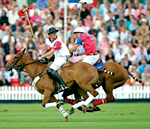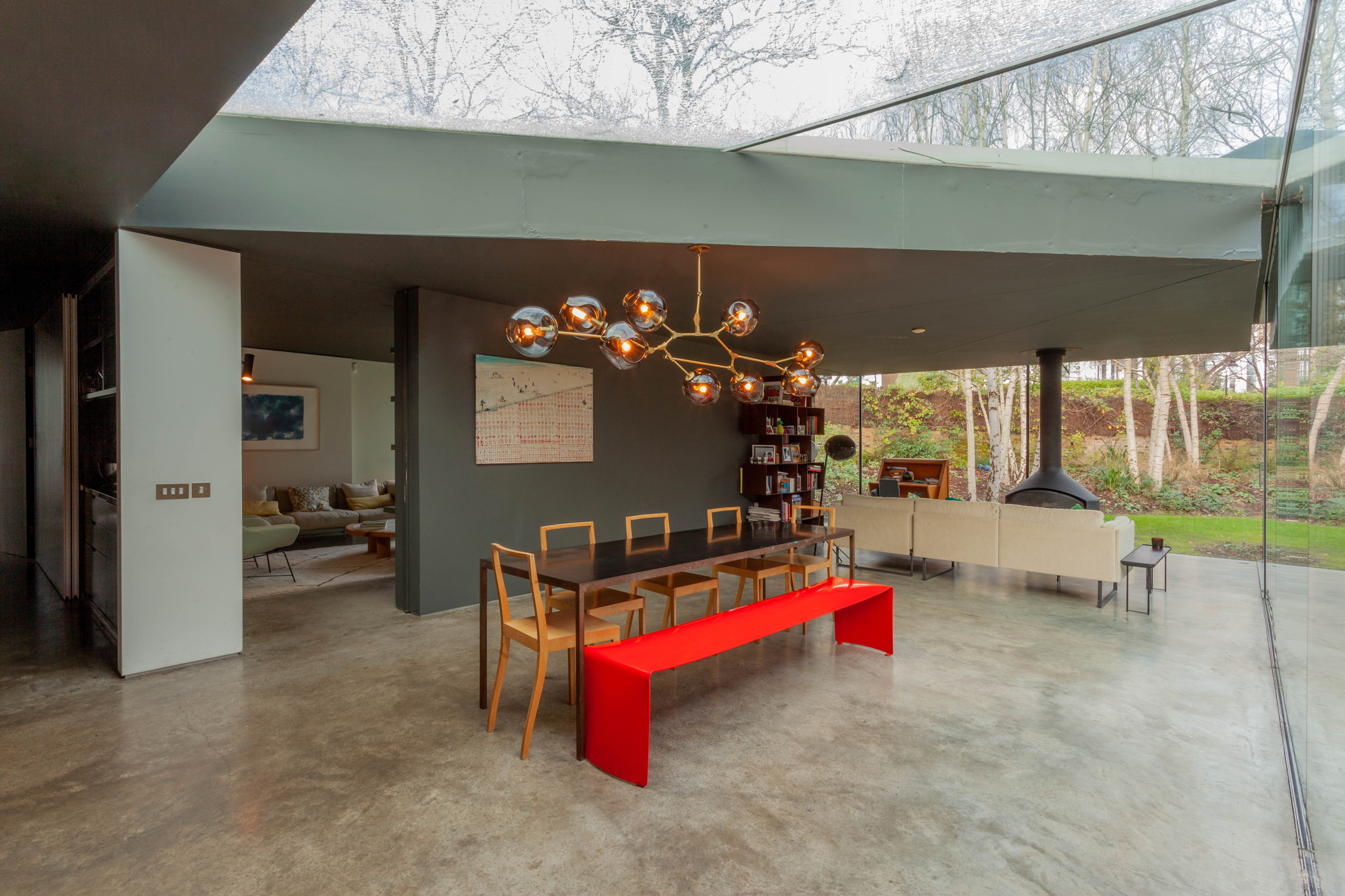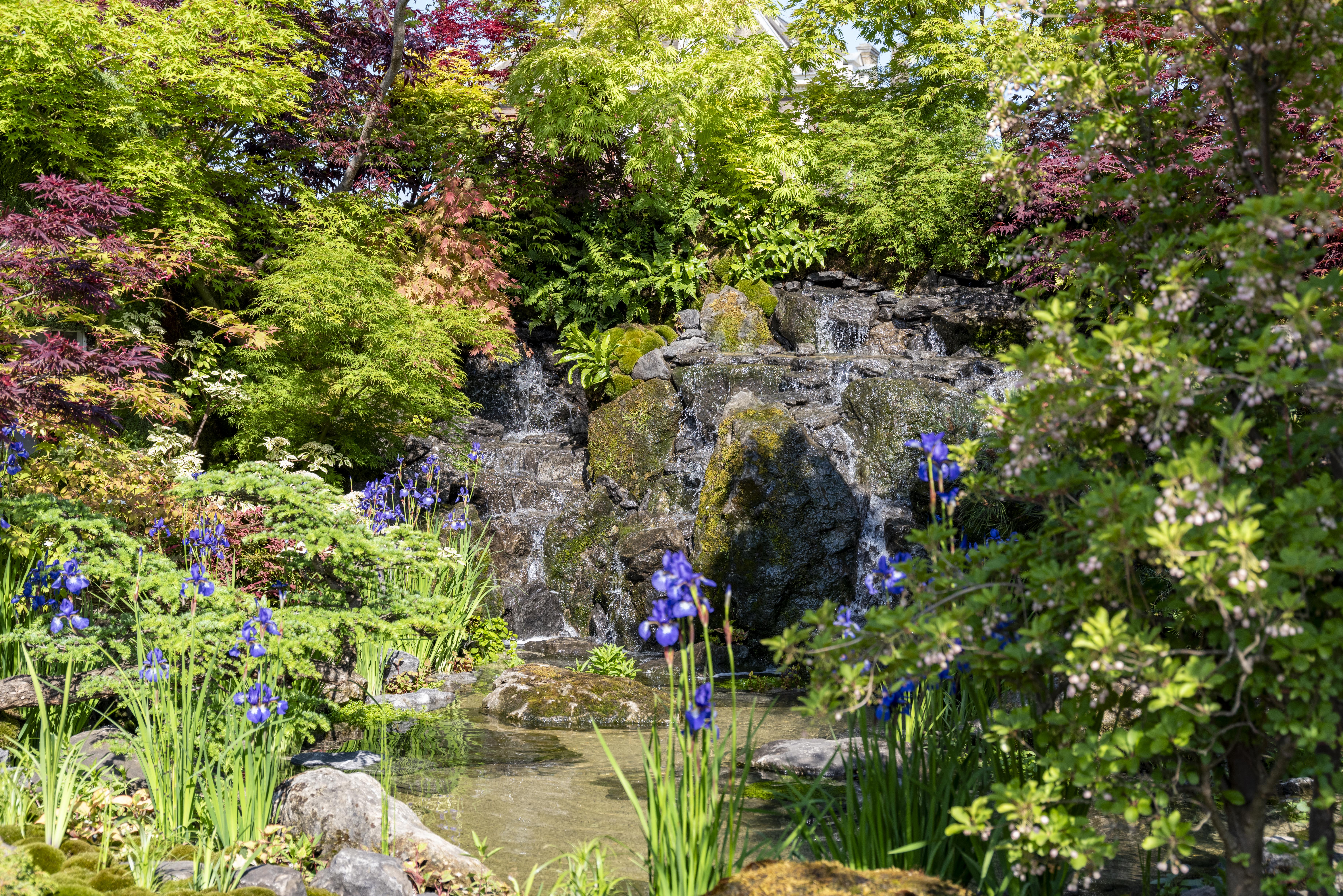Cowdray Park – the home of British polo
Cowdray Park, the home of British polo, celebrates 100 years of matches this year as polo finds itself in rude health


Thousands of spectators at the Veuve Cliquot Gold Cup British Open final on July 18 will be toasting the vibrant legacy of the Cowdray family as their estate in Midhurst, Sussex, celebrates 100 years of polo in the grounds. Twenty high-goal premiership teams have entered Cowdray Park's annual headline tournament-seven more than expected and six more than at the nearly-as-prestigious Queen's Cup at Guards but this is no mere gesture towards a landmark anniversary. British polo is not only riding the recession, it's booming at all levels, transcending age, gender, attainment and socio-economic status.
Its rude health can be attributed to the post-Second World War innovation of John, 3rd Viscount Cowdray, but, before that, Harold Pearson, the 2nd Viscount, who played at Oxford, laid two polo grounds when he moved onto the estate a century ago. Ponies were transported from Hurlingham or Roehampton in London and, within a year, a tournament began, to coincide with racing at nearby Goodwood.
Officers who had survived the First World War craved levity, and, by 1926, 3,000 spectators were turning out for the Cowdray Park Challenge Cup. John Cowdray, born in 1910, played polo seriously in the USA and, although not publicly enthusiastic about women players, practised furiously at home with three of his five sisters: Angela, Yoskyl and Daphne (now Lakin, and still a keen spectator today).
During the Second World War, every scrap of the estate was cultivated, with the house given over to the Royal Army Service Corps. John Cowdray, who had inherited it in 1933, lost an arm at Dunkirk, but returned determined to revive polo, and to play himself. With only a few ponies still alive, he shipped replacements from Argentina, a precedent that remains integral to the sport. And, when visiting Argentines thought England was sufficiently adept at the sport, he took a team to Buenos Aires for the Argentine Open, and, in 1951, offered a return visit for a revival of the Coronation Cup.
His team of John Lakin, Gerald Balding, Humphrey Guinness and Alec Harper won in three matches. The rest is history and, along the way, John Cowdray mentored Prince Philip, both as player and founder of the Guards Club at Windsor, was honoured by Midhurst for bringing global prominence to the town, hired out ponies at £1 a chukka so that Everyman could have a go, and founded the Gold Cup as a mechanism by which to bring the British Open to his club.
So what is the state of British polo beyond Cowdray's carpet of dreams? In May, Gerald Balding was posthumously honoured at the Audi Awards, polo's Oscars. Father of racehorse trainers Toby and Ian Balding, he was the last British player to attain the elusive 10-goal handicap. No one has come close since Julian and Howard Hipwood, both nine-goalers, in the 1980s and 1990s. Current England captain Luke Tomlinson and his brother Mark, whose parents own Beaufort Polo Club, both play off seven.
This should not concern, says New Zealand eight-goaler John-Paul Clarkin, who is married to Britain's leading lady player, Nina Vestey, and plays for Silver Spring 1870 in the Gold Cup. ‘It's a tricky one, as there are many very talented British players. There are so many factors-being in the right place at the right time to improve, and for your handicap to rise. At every level, polo has become tremendously competitive. And the quality of the horses has really improved. When I first came here, five dominant teams were very well mounted and then there were "the rest". Now, we have 20 teams in the Gold Cup, and there's not a bad one, pony-wise, among them.'
Sign up for the Country Life Newsletter
Exquisite houses, the beauty of Nature, and how to get the most from your life, straight to your inbox.
The Hipwood brothers recently won lifetime-achievement awards for the privilege of spending, as they put it, ‘48 years travelling the world, chasing a silly, white ball'. The disapproving may literally agree with this sentiment-polo is popularly perceived as the exclusive pastime of princes and hedge-fund managers, relentlessly partying from one exclusive location to the next: Florida, Barbados, Klosters and in The Queen's ‘back garden' at Guards. Mr Clarkin says you ‘might' buy a high-goal pony for £20,000, but some spend 10 times that amount and, if you're a pro, you'll need upwards of 12 equine Ferraris.
And polo can be a goldmine for the prodigious hired hand. In the past decade, Adolfo Cambiaso, a 10-goaler playing to the power of 12, was probably the world's highest-paid horseman. Competing for Dubai, he reportedly earned £2 million a year-more than Sheikh Mohammed's favourite jockey, Frankie Dettori.
This is all irresistible to high-end sponsors such as Cartier, Audi, Jaeger-LeCoultre and Veuve Clicquot, the latter supporting the Gold Cup for the 15th year in 2010. Deep pockets enable polo to be contrarily egalitarian, as patrons (team owners) of moderate ability can engage directly on the field of play-unlike Roman Abramovich, who wouldn't presume to don the Chelsea strip-the deficit in handicap being made up by a British player and a pair of globetrotting eight-goalers.
It is wholly wrong to assume polo is merely a pre-cocktail diversion. Competition is zealous and intense, and egos clash. English players have accused foreigners of abusing European law to deprive them of a livelihood, lobbying the Government to intervene. In 2004, a Swiss financier was fined £20,000 after boycotting a round of the Queen's Cup, claiming his disadvantageous draw had been covertly ‘pre-arranged'.
And let no one underestimate the skill and courage involved in riding a horse one-handed at 35mph while trying to strike a moving target. In 2006, two high-profile players sustained ultimately fatal injuries, and another was sued for millions for his alleged involvement in a separate traumatic collision. Settling that claim inevitably curtailed the Hurlingham Polo Association's (the sport's governing body) convention of underpinning player liability.
Polo also flourishes through its readiness to embrace new blood, and innovations are often driven by players with polo heritage, rather than ‘new money'. Four-goaler Jack Kidd, great-grandson of the newspaper magnate Lord Beaverbrook, is involved with Polo in the Park, a simplified game that recently attracted 25,000-plus to the Hurlingham grounds in Fulham. The Kidd family is close to the Bunns of Hickstead, the home of British showjumping, and encouraged them to introduce the three-a-side winter game of arena polo.
Utilising a sand/synthetic surface, Hickstead is already the largest arena club in Britain, with 100 playing members. ‘Polo is unusual, in that professionals traditionally have six months off,' says Daisy Bunn. ‘Arena polo changed all that, and opened polo to people with only one or two ponies. People can keep their horses on site and come down at weekends for a couple of chukkas. And because arena polo uses a smaller space, with boarded sides that stop the ball going out of play, it seems faster, more gladiatorial. Spectators love it.' Next February, high-goal polo will be staged at the O2 arena.
Consider also the role of the Pony Club. Long established as the nursery of the senior game, it's enjoying its own 21st-century boom under the polo-committee chair of Theresa Hodges, with 500 regular players aged six to 21. For 50 years, the incentive has been the three-day Pony Club championship-contested at Cowdray, of course.
This year's contenders can realistically aspire to follow senior stars: Lanto Sheridan, 19, honed his craft with the Crawley and Horsham branch and captained last winter's Young England New Zealand tour; Jack Taylor, 15, began playing with Cowdray Pony Club in 2000 aged seven and has already visited Dubai with the Young England squad; John Kent, 18, son of polo pro Alan Kent, has been in more winning Pony Club teams than you can shake a polo stick at. ‘Pony Club is a great place for any child to start, as it helps you to learn to play in the middle of the field, which you don't always have the chance to do when starting out in adult polo,' he says.
Lady Lloyd Webber, who succeeded The Princess Royal as Pony Club president this year, has already done her bit: the Lloyd Webbers heavily subsidise polo (at ‘no more than the cost of a piano lesson') on their Berkshire estate for a Newbury State school, St Bartholomew's, winners of a national tournament at their first attempt.
‘It used to be all boys-now, it's girls equally. Suddenly, it's "hip" to still be in the Pony Club when you're 17, and this is largely down to polo,' she says. ‘As any parent knows, it's crucial to find teenagers a hobby with a social life. This one also has the benefit of teaching true team values. Polo has been wonderfully managed, creating different levels of competition and making it accessible to children with only one, ordinary pony. My children love Cowdray; to them, it's like being let loose on Wimbledon's Centre Court.'
With a backdrop of Tudor ruins, Cowdray's polo lawns are indeed beautiful, but they are also state of the art. Living legend Carlos Gracida, who played off 10 goals for Kerry Packer, represents Sumaya in the Gold Cup and aims for an 11th win, having first graced Cowdray in 1982. ‘What you have here is tradition, tradition and tradition-there's no substitute for that,' he says. ‘With perhaps the exception of Palmero [in Argentina], Cowdray's grounds are the finest in the world, and by far the finest in Britain.'
The current Lord Cowdray doesn't ride-at 13, he had an alarming experience involving a pony and the A272-and his brother Charles's children, George and Carinthia Pearson, represent the next generation on the field. But he is a stickler for maintenance, like his father, renewing the drainage with extensive and expensive gravel banding every five years.
At the Gold Cup, there will be corporate hospitality, but mostly a sea of picnickers, as Cowdray has a strong sense of community, its spectators genuinely interested in the action on the field. ‘This is what my father wanted to create: a friendly, happy atmosphere,' he says. ‘He didn't like the commercial side, and paid for the season out of his own pocket, rather than charging people to come in. Only much later did he recognise it did need outside help. We try to keep the cost down, and love to see everybody from the town. That would please him most of all.'
Cowdray Park Polo Club hosts about 450 matches a year. The Veuve Cliquot Gold Cup tournament runs until July 18. Tickets are £15, and visitors are welcome to bring picnics and dogs, which must be on a lead (01730 813257; www.cowdraypolo.co.uk)
* For more Pursuit features like this every week, subscribe and save
Country Life is unlike any other magazine: the only glossy weekly on the newsstand and the only magazine that has been guest-edited by HRH The King not once, but twice. It is a celebration of modern rural life and all its diverse joys and pleasures — that was first published in Queen Victoria's Diamond Jubilee year. Our eclectic mixture of witty and informative content — from the most up-to-date property news and commentary and a coveted glimpse inside some of the UK's best houses and gardens, to gardening, the arts and interior design, written by experts in their field — still cannot be found in print or online, anywhere else.
-
 Hidden excellence in a £7.5 million north London home
Hidden excellence in a £7.5 million north London homeBehind the traditional façades of Provost Road, you will find something very special.
By James Fisher
-
 RHS Chelsea Flower Show: Everything you need to know, plus our top tips and tricks
RHS Chelsea Flower Show: Everything you need to know, plus our top tips and tricksCountry Life editors and contributor share their tips and tricks for making the most of Chelsea.
By Amie Elizabeth White